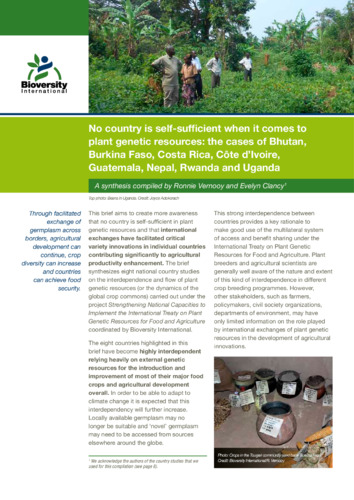No country is self-sufficient when it comes to plant genetic resources for food and agriculture: the cases of Bhutan, Burkina Faso, Costa Rica, Côte d’Ivoire, Guatemala, Nepal, Rwanda and Uganda
This brief aims to create more awareness that no country is self-sufficient in plant genetic resources and that international exchanges have facilitated critical variety innovations in individual countries contributing significantly to agricultural productivity enhancement. The brief synthesizes eight national country studies on the interdependence and flow of plant genetic resources (or the dynamics of the global crop commons) carried out under the umbrella of the project Strengthening National Capacities to implement the International Treaty on Plant Genetic Resources for Food and Agriculture coordinated by Bioversity International.
Research confirmed that all eight countries are highly reliant on a broad diversity of genetic resources from outside their borders as inputs into their agricultural research and development , and that climate change will likely increase that dependence. The research also highlighted that genetic resources from those countries are being made available to other countries, often through the CGIAR Centres’ genebanks.
This strong interdependence between countries provides a key rationale to make good use of the multilateral system of access and benefit sharing under the International Treaty on Plant Genetic Resources for Food and Agriculture.

